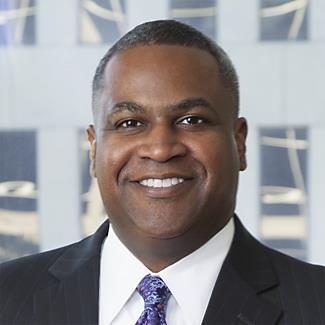As a key element of an effective diversity, equity, and inclusion (DEI) program, mentorship can take many forms.
Maintaining a diverse workforce requires an organization to be able to attract lawyers of all colors, backgrounds, and gender identities, and to foster an atmosphere that makes them want to stay as they progress through their careers. A key tool to achieve this goal is creating opportunities for mentorship, both formal and informal.
Young or inexperienced lawyers, as well as lawyers who are new to a firm or taking on a new role, can feel isolated when they join a corporate law department or outside law firm and are still learning the ropes. This is especially true for those who are female or of color.

Lawyers Forum
“It’s so important that they feel included in the fabric of the organization,” says Jenea M. Reed, a shareholder in the litigation department at Stearns Weaver Miller in Miami, FL, and a member of the Leadership Council of the Meritas Black Lawyers Forum. “A long-term mentor can give less experienced lawyers career advice, help them address sticky situations, and answer questions about the nuances of being a lawyer. It helps build confidence and makes them feel included.”
The same is true for female lawyers. While every lawyer’s experience is unique, many have concerns, ranging from balancing work and childcare to dealing with sexism on the job.
“Women who are in a position to be mentors have gone through many of the same experiences as their newer colleagues,” says Kathy H. Butler, leader of the Health Care Practice Group at Greensfelder, Hemker & Gale, P.C. in St. Louis, MO, and a member of the Meritas Women’s Leadership Congress’ Leadership Council.

“They can show younger women how to navigate the minefields facing us as women and give them the opportunity to ask questions and feel confident that they will not be judged or perceived to be weak. Mentors can also help them see that they can advocate for themselves without the fear of being perceived as too aggressive.”
“There are situations, even in this day and age, where people are treated differently because they’re women,” says Melissa Peña, chair of the Women’s Leadership Congress’ Leadership Council. She is a member of the Management Committee and chair of the Bankruptcy and Creditors’ Rights Practice Group at Norris McLaughlin, P.A. in Bridgewater, NJ.
“People assume you’re the court reporter. Or, when you’re the woman in the room, it defaults that you’re the scrivener. It’s not meant to offend, but it happens. It’s a benefit just to share these experiences we’re all still facing. People deal with things in different ways and hearing how others are doing might change your perspective.”

Bridgewater, NJ
Strong mentorship opportunities also benefit the organization, of course. “We want to ensure that we develop a cohort of diverse future leaders within our network and support our member firms as they work toward the same goal,” says Sona Pancholy, Meritas president.
“We can best serve our clients when our practices and decision-making processes are guided by teams with a wide variety of perspectives and experiences. The mentorship and lawyer development opportunities coming out of our Black Lawyers Forum and Women’s Leadership Congress affinity groups are key tools for us to achieve this objective.”
“I think mentoring is very rewarding for the mentor as well as the mentee,” adds Butler. “It’s a good way for more experienced lawyers to understand the generational differences, which can be so great, and find out how their younger lawyers are thinking and approaching things.”

What is mentorship?
When you think of mentorship, you may think of long-term relationships between lawyers who are new to a practice or firm and the senior lawyers assigned to guide them. But it can be so much more. “Mentorship does not have to look the same everywhere,” says Reed. “There are lots of ways to establish mentor relationships that have the same ultimate goal, and relationships often grow organically. You’re not assigned to a person, but you click and feel comfortable with them.”
A lawyer can and should have several mentors, Reed believes.
Some may be more experienced associates within the same law department or firm, some may come from a common practice area, and some may be people who have a common background and can understand the unique issues of being a lawyer of color or a woman. “It’s really important to expand your network,” she says.
“There are so many facets of mentoring,” agrees Peña. “It’s the job and skills; it’s workplace issues and politics; it’s learning how to generate business.”
"We can best serve our clients when our practices and decision-making processes are guided by teams with a wide variety of perspectives and experiences."
- Sona Pancholy, Meritas president
Value can also come from industry relationships made in practice or industry groups, bar associations, or affinity groups, or even outside the practice of law. Opportunities to hear from senior lawyers on a one-off basis, such as in roundtables, at networking functions, or in law school before a career even gets started, also can enhance a less-experienced lawyer’s knowledge and perhaps be a steppingstone to career-long relationships. An outside law firm can also be a source for mentorship about career issues and goals.
“Just have launch and talk,” says Butler. “It’s not, ‘Here, sign this contract to be my mentor.’ It’s more about making connections. Don’t be afraid to ask someone you trust if they are willing to share their experiences or have a confidential conversation about an issue you’re facing.”
Reed notes that lawyers should also seek out sponsors. “Mentorship is about the day-to-day questions of how things work, how to go about tackling issues, and how to be included in the fabric of the company,” she says. “Sponsorship is the next level. It’s someone who is aware of your work and knows its value, and who will speak up and advocate for you in what I call ‘the room where it happens.’”
Communication is key
To succeed with mentoring, as with any aspect of a DEI program, messaging from the top levels of an organization is critical. “If this is important to the company and important to the shareholders, it becomes an important company philosophy for senior executives and for the legal department,” says Brian Newby, managing partner at Cantey Hanger LLP in Fort Worth, TX, and chair of the Meritas Black Lawyers Forum’s Leadership Council.

Cantey Hanger LLP,
Fort Worth, TX, and chair,
Meritas Black Lawyers Forum’s Leadership Council
He points out the need for training as well. “You need to mentor the mentors,” he says. “Make sure the individuals at the top understand DEI and understand it in such a way that they can be a good mentor. You want this to be something that brings value to the lawyers you’re working with and added value to the firm itself.”
What if there are no senior lawyers of color or women in high-level positions, something that is still the case in some small and mid-sized corporate law departments? “Then it’s about having a dialog and being receptive to communicating openly and sometimes painfully,” Newby says.
“If I’m not walking in your shoes, I may not understand your dilemmas and concerns. I find most young lawyers are pretty comfortable opening up if you just ask them what their concerns are.”
He adds that sometimes less-experienced lawyers need to take that first step. “They can start the conversation about what’s lacking in the firm in terms of inclusion,” he says. “It can start with something elementary and then get into the deeper issues. They can ask, ‘I’m not getting the same work assignments as everyone else, is there a reason for that?’ Or ‘I’m not getting invited to lunch, am I doing something wrong?’ They need to ask the question even if the answer is not to their liking. The senior lawyer may not recognize that they’re not getting the same assignments unless they ask.”
"You need to mentor the mentors."
- BRIAN NEWBY, MANAGING PARTNER, CANTEY HANGER LLP, FORT WORTH, TX, AND
CHAIR, MERITAS BLACK LAWYERS FORUM’S LEADERSHIP COUNCIL
“Most of us have had more experienced mentors who have helped us progress in our careers,” says Pancholy. She notes that it can also be valuable to flip the script by implementing a program of “reverse mentoring,” where diverse lawyers help their more senior colleagues better understand the issues their DEI programs should address.
“Senior lawyers can learn a lot from less experienced lawyers of different backgrounds, perspectives, ethnicities, and gender affiliations,” Pancholy explains. “They can help open the eyes of senior lawyers and business leaders to important definitions and concepts they may not even be aware of. The more we understand our colleagues who are different from us, the more we can have the important conversations and move the needle toward a truly diverse and inclusive legal industry.”




